new posts in all blogs
Viewing: Blog Posts Tagged with: 1800-1900, Most Recent at Top [Help]
Results 1 - 7 of 7
How to use this Page
You are viewing the most recent posts tagged with the words: 1800-1900 in the JacketFlap blog reader. What is a tag? Think of a tag as a keyword or category label. Tags can both help you find posts on JacketFlap.com as well as provide an easy way for you to "remember" and classify posts for later recall. Try adding a tag yourself by clicking "Add a tag" below a post's header. Scroll down through the list of Recent Posts in the left column and click on a post title that sounds interesting. You can view all posts from a specific blog by clicking the Blog name in the right column, or you can click a 'More Posts from this Blog' link in any individual post.
Lorna Doone. R.D. Blackmore. 1869. 658 pages.
If anybody cares to read a simple tale told simply, I, John Ridd of the parish of Oare, in the county of Somerset, yeoman and churchwarden, have seen and had a share in some doings of this neighborhood, which I will try to set down in order, God sparing my life and memory. Lorna Doone was a classic that I almost almost loved. However, while I didn't "love" it, I certainly liked it. What I liked best about Lorna Doone was the romance. There were a few love scenes in this one--scenes where John Ridd is wooing Lorna Doone and professing his unending love for her. And those scenes work the best of any in the novel. But those scenes make up just a fraction of the novel, and to be honest I found most of this one to be boring. Now, I enjoy a rambling novel, I do. I love Anthony Trollope, Charles Dickens, and Wilkie Collins. I don't mind an author that takes his time telling a story--so long as the asides are written in a charming, entertaining way. But I didn't feel that was the case in Lorna Doone.
This historical romance is set in Exmoor (Devon and Somerset England) in the 17th Century) during the reigns of King Charles II and James II. John Ridd falls in love with Lorna Doone, but there are a few big obstacles standing in the way of their true love. First, she is a Doone. The Doone clan murdered John's father. John himself forgives this flaw easily since Lorna is so incredibly beautiful. The rest of his family may not be eager to welcome a woman from the outlaw clan. And the Doone clan, well, they are definitely not wanting to lose "their" Lorna to John Ridd. Second, Lorna's mysterious past. She doesn't remember a time before the Doones, but, that doesn't mean there wasn't one. And this big reveal causes some to believe that John Ridd isn't good enough--worthy enough-- for her. I will not say more than that. Third, the general times in which they lived: the political mess of the battle for the kingdom between James II and the Duke of Monmouth. John is mistakenly taken for a soldier on Monmouth's side--that is not the case, but it does pose some problems. Fourth, the pure evil that is Carver Doone.
Favorite scenes:
I would have leaped into the valley of the shadow of death (as described by the late John Bunyan), only to hear her call me "John"; though Apollyon were lurking there, and Despair should lock me in.
She stole across the silent grass; but I strode hotly after her; fear was all beyond me now, except the fear of losing her. I could not but behold her manner, as she went before me, all her grace, and lovely sweetness, and her sense of what she was.
She led me to her own rich bower, which I told of once before; and if in spring it were a sight, what was it in summer glory? But although my mind had notice of its fairness and its wonder, not a heed my heart took of it, neither dwelt it in my presence more than flowing water. All that in my presence dwelt, all that in my heart was felt, was the maiden moving gently, and afraid to look at me.
For now the power of my love was abiding on her, new to her, unknown to her; not a thing to speak about, nor even to think clearly; only just to feel and wonder, with a pain of sweetness. She could look at me no more, neither could she look away, with a studied manner—only to let fall her eyes, and blush, and be put out with me, and still more with herself.
I left her quite alone; though c
Jane Eyre. Charlotte Bronte. 1847. 300 pages.
There was no possibility of taking a walk that day.I know not everyone sees value in rereading books. But. I just can't help it. If I love a book once, I'm going to want to revisit it. Again and again and again. After all, if I never wanted to read it again...ever...could I even really say I loved it? Or loved, loved, loved it?
Jane Eyre was a pleasure to reread. It really was. From the first page to the last, it kept me satisfied. There was so much to savor, so much to slowly absorb. I didn't rush this one. I didn't want to rush this one. I wanted to enjoy every moment of this one. Because books as wonderful as Jane Eyre just aren't that easy to find.
Though Jane Eyre has been adapted to films many times, I don't think it's a novel that adapts particularly well. The novel is told in first person. We see EVERYTHING through Jane's eyes. It is a very personal connection the reader has to make with Jane if the novel is to be appreciated and loved. If you don't come to love Jane, if you don't come to understand Jane, if you don't come to see the world through Jane's eyes, if you don't see Mr. Rochester as Jane does, if you don't LOVE him as Jane does, then you're not getting the full experience.
I was disappointed with the 2011 adaptation. Especially with Mr. Rochester. Why? Well, if you didn't already LOVE Mr. Rochester, then you would have no real reason--other than appearance, perhaps?--to love him. By taking the words out of his mouth, by eliminating almost all of his dialogue with Jane, by eliminating the oh-so-crucial gypsy scene, viewers see only a slightly teasing Mr. Rochester with a very deep, very dark secret. We see him only at his very, very worst, for the most part. And the scene after Jane knows the truth, well, it just seems so far removed from anything in the book. It was seeking out that scene in the book, it was wanting to know how the *real* Mr. Rochester treated Jane after the big shocking reveal, that led me to reread the book.
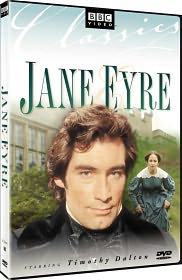
The BBC production (from early 1980s) starring Timothy Dalton and Zelah Clarke is a much, much, much better adaptation. In my opinion. I loved, loved, loved how Jane's relationship with Mr. Rochester developed. I loved their scenes together. I loved the dialogue. I loved how we really got to know both characters through the episodes. (It is over five hours long!) Everything that I loved about the book (almost everything) was present in this adaptation. It just felt right!!!
Do you have a favorite adaptation of Jane Eyre?
My
original review.
© 2011 Becky Laney of
Becky's Book Reviews
Twenty Thousand Leagues Under the Sea. Jules Verne. 1870. Puffin Classics. 280 pages.
In the year 1866 the whole maritime population of Europe and America was excited by a mysterious and inexplicable phenomenon. I didn't seek out an abridged version of this Jules Verne classic. But when I discovered that the edition I'd checked out from the library was abridged--after I was four or five chapters into it--I didn't try to 'fix' it either.
I'll start with the good news. I definitely liked this one more than Journey to the Center of the Earth! There were times I actually thought Twenty Thousand Leagues Under the Sea was a good read. That the story had action and adventure and mystery.
Basic plot: A professor and his servant are 'captured' by a 'sea monster' created by the cranky Captain Nemo.
While reading this one, I started thinking about Frankenstein--which is a good thing, I think. I never did quite decide how the characters matched up between the two. But I think that there are definite similarities in theme. Frankenstein is one of my comfort reads--a book I love and adore. Twenty Thousand Leagues Under the Sea is a good read, but I'm not sure I'll ever want to reread it. If I ever do read it again, I might try the unabridged version.
© 2011 Becky Laney of
Becky's Book Reviews

By:
Becky Laney,
on 8/19/2011
Blog:
Becky's Book Reviews
(
Login to Add to MyJacketFlap)
JacketFlap tags:
adventure,
classics,
J Fiction,
J Realistic Fiction,
J Adventure,
children's classic,
library book,
1899,
1800-1900,
Add a tag
The Story of the Treasure Seekers. E. Nesbit. 1899. Puffin. 250 pages.
This is the story of the different ways we looked for treasure, and I think when you have read it you will see that we were not lazy about the looking. I just loved The Story of the Treasure Seekers. I loved the Bastables. There are six children: Dora, Oswald, Dicky, Noel and Alice, and H.O. (Horace Octavius). The children have a father, but no mother. But the father, for the most part, is absent from their day to day lives. This one has a simple plot. The children know that the family is in desperate need of money, and, well, they decide to look for treasure. Each child has an opportunity (or two) to come up with a plan for 'finding' treasure (getting money). Some of the plans are silly and over the top. (Like Noel's plan to marry a princess when he grew up.) But many of their plans lead to a FUN adventure!
I definitely enjoyed this one and would recommend it! It's a great adventure story with many satisfying moments. IF you've only read Nesbit's fantasy, you should give this one a try.
© 2011 Becky Laney of
Becky's Book Reviews
The Book of Dragons. E. Nesbit. 1900. 180 pages.
The Book of Dragons is a collection of eight short stories by E. Nesbit. While I enjoy fantasy--especially when I'm in the right mood for it, especially when it is written by someone as talented as E. Nesbit--I am not always a big fan of short stories--no matter the genre.
I did enjoy this collection. I didn't love every story within the book, but I enjoyed many of them. The writing was just so delightful, so right, so satisfying. The eight stories are: The Book of Beasts, Uncle James or the Purple Stranger, The Deliverers of Their Country, The Ice Dragon Or Do As You Are Told, The Island of the Nine Whirlpools, The Dragon Tamers, The Fiery Dragon Or the Heart of Stone and the Heart of Gold, and Kind Little Edmund Or The Caves and the Cockatrice.
My favorite stories were The Island of The Nine Whirlpools and The Book of Beasts.
© 2011 Becky Laney of
Becky's Book Reviews
The Light Princess. George MacDonald. 1864. 110 pages.
Once upon a time, so long ago that I have quite forgotten the date, there lived a king and queen who had no children. And the king said to himself, "All the queens of my acquaintance have children, some three, some seven, and some as many as twelve; and my queen has not one. I feel ill-used." So he made up his mind to be cross with his wife about it. But she bore it all like a good patient queen as she was. Then the king grew very cross indeed. But the queen pretended to take it all as a joke, and a very good one too."Why don't you have any daughters, at least?" said he. "I don't say sons; that might be too much to expect." "I am sure, dear king, I am very sorry," said the queen."So you ought to be," retorted the king; "you are not going to make a virtue of that, surely."But he was not an ill-tempered king, and in any matter of less moment would have let the queen have her own way with all his heart. This, however, was an affair of state. The queen smiled. "You must have patience with a lady, you know, dear king," said she.She was, indeed, a very nice queen, and heartily sorry that she could not oblige the king immediately. (1-2)
The Light Princess is such a DELIGHTFUL book. It seems obvious in a way to call it delightful and charming and oh-so-magical. But it's true. There are no other words that could do it justice. It's the story of what happens when this childless king and queen have a baby girl of their own. It's the story of what happens when one of the princesses (who is also a witch) is NOT invited to the christening.
The king tried to have patience, but he succeeded very badly. It was more than he deserved, therefore, when, at last, the queen gave him a daughter--as lovely a little princess as ever cried.
The day drew near when the infant must be christened. The king wrote all the invitations with his own hand. Of course somebody was forgotten.
Now it does not generally matter if somebody is forgotten, only you must mind who. Unfortunately, the king forgot without intending to forget; and so the chance fell upon the Princess Makemnoit, which was awkward. For the princess was the king's own sister; and he ought not to have forgotten her. But she had made herself so disagreeable to the old king, their father, that he had forgotten her in making his will; and so it was no wonder that her brother forgot her in writing his invitations. But poor relations don't do anything to keep you in mind of them. Why don't they? The king could not see into the garret she lived in, could he?
She was a sour, spiteful creature. The wrinkles of contempt crossed the wrinkles of peevishness, and made her face as full of wrinkles as a pat of butter. If ever a king could be justified in forgetting anybody, this king was justified in forgetting his sister, even at a christening. She looked very odd, too. Her forehead was as large as all the rest of her face, and projected over it like a precipice. When she was angry, her little eyes flashed blue. When she hated anybody, they shone yellow and green. What they looked like when she loved anybody, I do not know; for I never heard of her loving anybody but herself, and I do not think she could have managed that if she had not somehow got used to herself. But what made it highly imprudent in the king to forget her was--that she was awfully clever. In fact, she was a witch; and when she bewitched anybody, he very soon had enough of it; for she beat all the wicked fairies in wickedness, and all the clever ones in cleve
Sense and Sensibility. Jane Austen. 1811. (The Complete Novels) Random House. p. 3-175.
The family of Dashwood had been long settled in Sussex. Their estate was large, and their residence was at Norland Park, in the centre of their property, where for many generations they had lived in so respectable a manner as to engage the general good opinion of their surrounding acquaintances. I don't know why I didn't love Sense and Sensibility the first time I read it. I really don't. Because it's just as good as all the other Austen I've read--or reread as the case may be. Could it be that some Austen novels just need to be read twice to be appreciated? Or could it be that this novel was just in the right place at the right time for me to love it? Mood does factor into my experience after all! Could me loving
Colonel Brandon's Diary by Amanda Grange have something to do with it? And I couldn't help making comparisons between Sense and Sensibility with Anthony Trollope's
The Small House of Allington. Couldn't help concluding that if Austen had been writing it, readers would have had a FULLY, FULLY satisfying ending! (And if Trollope had been writing Sense and Sensibility, well, Marianne might not have given up
some of her notions.) Let's just be thankful that Thomas Hardy did not write Sense and Sensibility or The Small House of Allington!
I almost feel silly not including a summary, but it also feels silly to include a summary. I feel so many people will already be familiar with the basics of the story. So here it goes.
Soon after the novel opens, Mr. Dashwood dies. The second Mrs Dashwood has three daughters and not much money. For most everything went to Mr. John Dashwood, the eldest son, the son of the first Mrs. Dashwood. He promised his father--
promised--that he would provide for his half-sisters and step-mother. (For the father was very distraught about his family and how they would be able to live.) To borrow from Dr. Seuss,
he said and said and said those words, he said them but he lied them*. Is that exactly fair? Yes and no. He just didn't remember that he's not allowed to have thoughts and opinions of his own. He forgot to take into account his wife, Fanny Dashwood. He forgot that she would most definitely have an opinion on
his her their newly inherited money. The scene between the two is quite remarkable and clever. If you can view them as villains providing comic relief. If you consider them as human beings, well, their actions can't be justified so don't even try.
So after many uncomfortable months sharing a home with John and Fanny Dashwood (and their son), Mrs. Dashwood decides she's had enough. She agrees to move with her three daughters to a small cottage (on the estate of Barton Park) where they can afford the rent. It isn't a perfect situation because it brings them into the company of Sir John Middleton, Lady Middleton, and Mrs. Jennings, just to name a few. (A little of their company goes a long, long way). But they are happy enough in their own way.



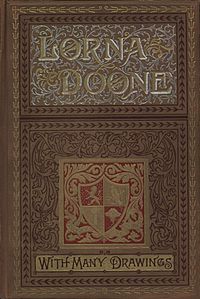
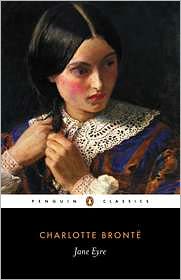


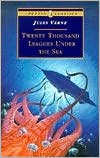
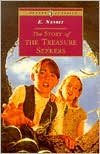
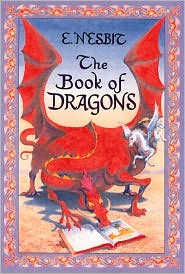

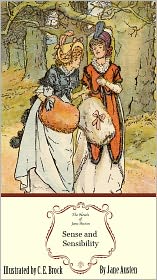
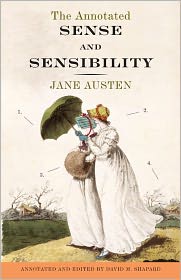
How funny! I remember reading and loving this one (quite a few years ago now) and thinking how humorous I found it. Rambling, I'm sure, but for some reason I can't remember well, I thought the ramblings were funny. Eh. Guess I need a reread.
I really enjoyed this one. The nature descriptions are a little much, but I loved John a lot, and I thought the romance was sweet. You should watch the adaptation!
I love the cover!
For me I'm ashamed to say that the cover is what I often go for when I choose a book. How about you?